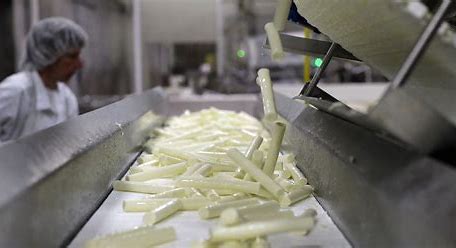Fixing Heater Failures Efficiently in Food Production
Heater Failures probably isn’t the phrase you expected. As good Wisconsinites, we all know that it should have said beer. Believe We understand the value of good food and a cold brew here at Sure Controls. In fact, we have an onsite beer brewing machine that even has its own plant intelligence and digital manufacturing data solution.
The core of our business is providing excellent and appropriate automation solutions to Wisconsin manufacturers. We service a whole portfolio of industries from food processing and packaging, to medical and industrial asphalt.
Each month we will showcase mini case studies of companies we have assisted in our region. This month, the focus is the food industry.
Sausage Company
Sure Controls was asked to complete a Cleaning-in-Place (CIP) process evaluation. During this exercise our team of techs found a number of process and procedural improvements that extended the life of the process heaters and thus generated additional ROI out of the customer’s original investment. A proactive approach would also mean less likelihood of machine downtime. The Tutco Farnam heater was also configured with a quick change system, that requires minimal downtime to recover from an issue, saving time and money.
Not only did the Sure Controls team improve the existing equipment, we ensured that future orders would be hassle free by decreasing lead time for replacement parts. The new part is stocked at the customer and at Sure Controls, so the solution is always just one phone call or email away.
Cheese Company
Any good Cheesehead knows that in order to be successful you need to be resourceful and avoid machine downtime. At Sure Controls we pride ourselves on our troubleshooting capabilities. We provide troubleshooting both at the customer site and remotely. The customer need determines how we respond.
For this cheese company, our engineers were on site to look into a servo drive that had failed.
The original servo drive was obsolete, and the customer had no spare drives on hand. They did, however, have several spare motors. With our vast motor and drive knowledge of both of past and current technologies, we were able to find a new Parker drive that would perform the same functionality and commutate the existing motor. The Parker drive was programmed and tested. The result, the machine was up and running and back in production in short order. The cheese company was able to extend the life of their asset with minimal investment through this process.

